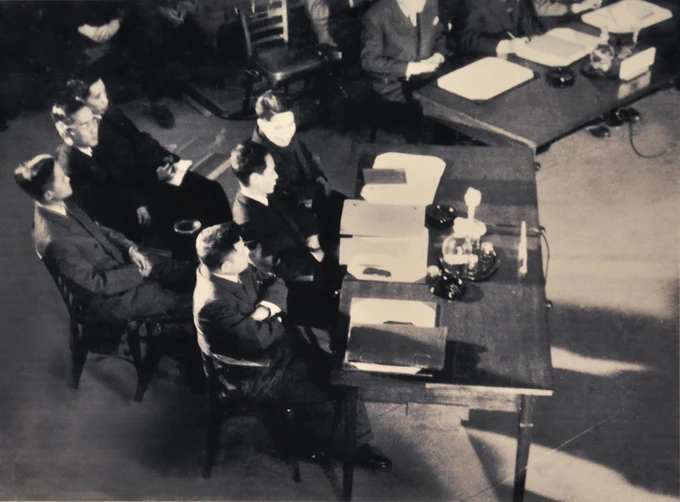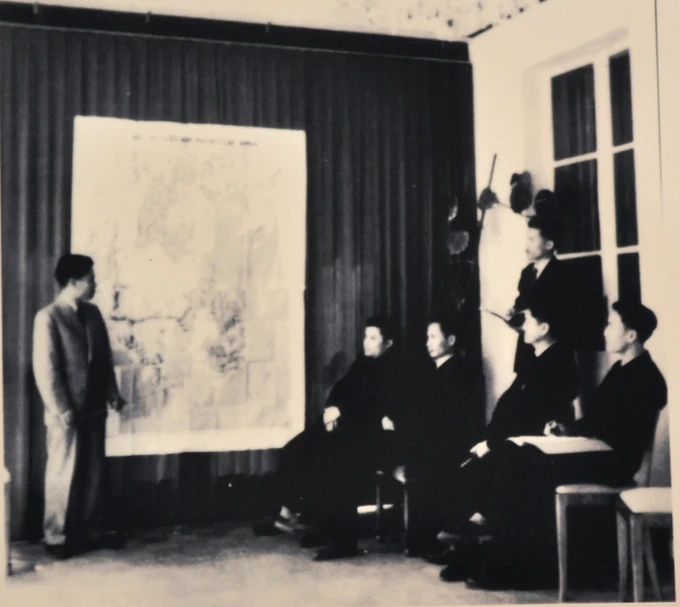Nearly 24 hours after the fall of the French garrison at Dien Bien Phu, the Geneva Conference on Indochina (hereafter the Geneva Conference) officially commenced. That was the fourth official meeting between France and Viet Nam since the latter had become independent. While the French delegation was headed by French Foreign Minister Georges Bidault, the Vietnamese delegation, led by Deputy Prime Minister of the (then) Democratic Republic of Viet Nam Pham Van Dong, came to the Conference as the victor of the war.

After over 70 days of negotiation with 31 sessions and many bilateral and multilateral meetings on the sidelines of the Conference, the Geneva Conference ended with the signing of the Accords on Indochina (20/07/1954) as an international document for the solutions to ending the war and restoring peace in Viet Nam comprehensively in military, political, social, diplomatic, and legal terms, opening a new period for our people’s struggle for national liberation.

This victory derived from our military and people’s patriotic tradition, willpower, knowledge, and courage, as well as the close combination between the military struggle in the 1953-1954 Winter Spring Offensive with the historic victory of Dien Bien Phu at its peak and the diplomatic struggle.

Looking back on the 70-year history of the Geneva Conference on Indochina, it was the art of “knowing the enemy and ourselves” and knowing how to “halt” properly that helped us consolidate, build, and develop the force, accumulate materials, create new strength, make progress step by step, and fulfil the cause of national liberation.

Source: National Defence Journal





Related Post